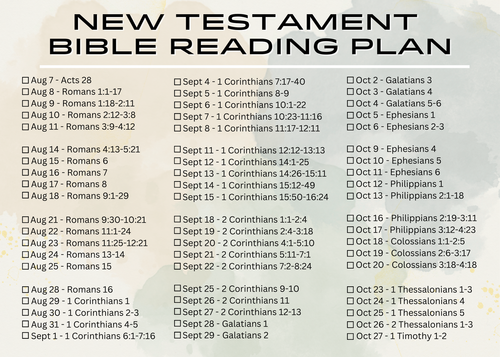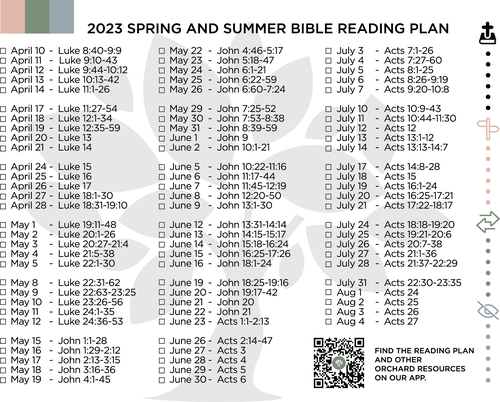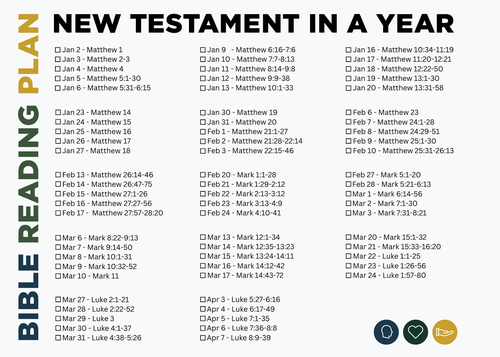Mystery, Victory, And Final Instructions
1 Corinthians 15:50-16:24
Our physical bodies, whether living or deceased, undergo decay. Just as the unrighteous are unfit to inherit the kingdom of God, our earthly bodies are also unsuitable for such inheritance. Therefore, God will transfigure the earthly bodies of believers into heavenly ones. Paul introduces a previously concealed mystery, now unveiled by God. Although not all believers will experience physical death, God will instantaneously transform the earthly bodies of every believer, both living and deceased, into heavenly bodies upon Christ's return. This is the essence of the mystery. In a split second, God will effect this transformation, signaled by the sounding of a trumpet, indicating the arrival of "the end" (Zech. 9:14; Matt. 24:31; 1 Thess. 4:16). God will resurrect deceased believers and transfigure their earthly bodies into heavenly bodies, while also transforming the earthly bodies of believers who are still alive. God has purposed to transform our perishable, mortal bodies, whether living or deceased, into imperishable, immortal bodies.
Death will be overcome because of Christ's death and resurrection. By defeating death, Christ also defeats sin permanently. In the Garden of Eden, sin gained power through the law, leading to death. However, Christ's victory over sin ensures that God's law brings life to His people and does not empower sin. We are grateful to God for completely and permanently conquering death on our behalf through Christ's sacrifice and resurrection. Believers can persevere, knowing their work is meaningful in the Lord's sight. Paul lovingly addresses the Corinthians as his dear brothers and sisters. Their work holds eternal value as God raised Christ and will raise believers.
Paul directs the church to allocate funds, and he outlines four conditions for this directive:
Paul is sharing his travel plans for himself, Timothy, and Apollos. He intends to travel through Macedonia and possibly stay with the Corinthians, who can support his next journey. Paul wants to spend more time with the Corinthians because he loves them and doesn't want to rush his visit. However, he acknowledges that his plans are subject to the Lord's permission. In the meantime, Paul plans to stay in Ephesus, where God is providing opportunities for effective service despite facing opposition.
Considering that some Corinthians may not show respect to Paul, he expresses concern about how they might treat his young representative. Therefore, Paul urges the Corinthians to receive Timothy hospitably, as he is engaged in the same pastoral work as Paul. Paul asks them to "put him at ease," possibly because Timothy is prone to fear. The Corinthians should respect Timothy and send him off "in peace" so that he can return to Paul in due course. In their letter to Paul, the Corinthians apparently requested a visit from Apollos. Paul encourages Apollos to visit them but understands that Apollos will go when the time is right.
The Corinthians are encouraged to greet one another with a holy kiss, which Peter refers to as "the kiss of love" (1 Pet. 5:14). In the Greco-Roman culture, it was common for family members to greet each other with a kiss. When believers in the Lord welcome one another, their greeting is considered holy. The underlying principle is that brothers and sisters in Christ should greet each other affectionately, adapting to culturally appropriate ways. Paul personally writes a greeting to the Corinthians, taking the pen from his amanuensis.
In conclusion, Paul makes four requests in his prayer:
Death will be overcome because of Christ's death and resurrection. By defeating death, Christ also defeats sin permanently. In the Garden of Eden, sin gained power through the law, leading to death. However, Christ's victory over sin ensures that God's law brings life to His people and does not empower sin. We are grateful to God for completely and permanently conquering death on our behalf through Christ's sacrifice and resurrection. Believers can persevere, knowing their work is meaningful in the Lord's sight. Paul lovingly addresses the Corinthians as his dear brothers and sisters. Their work holds eternal value as God raised Christ and will raise believers.
Paul directs the church to allocate funds, and he outlines four conditions for this directive:
- When? Every Sunday - presumably when the church gathers weekly to worship on the day of Jesus' resurrection.
- With what purpose? To accumulate savings.
- How much? "As he may prosper" determines the amount a believer should give, based on their income.
- For what reason? So that Paul wouldn't have to collect funds for the Jerusalem church upon his arrival in Corinth.
Paul is sharing his travel plans for himself, Timothy, and Apollos. He intends to travel through Macedonia and possibly stay with the Corinthians, who can support his next journey. Paul wants to spend more time with the Corinthians because he loves them and doesn't want to rush his visit. However, he acknowledges that his plans are subject to the Lord's permission. In the meantime, Paul plans to stay in Ephesus, where God is providing opportunities for effective service despite facing opposition.
Considering that some Corinthians may not show respect to Paul, he expresses concern about how they might treat his young representative. Therefore, Paul urges the Corinthians to receive Timothy hospitably, as he is engaged in the same pastoral work as Paul. Paul asks them to "put him at ease," possibly because Timothy is prone to fear. The Corinthians should respect Timothy and send him off "in peace" so that he can return to Paul in due course. In their letter to Paul, the Corinthians apparently requested a visit from Apollos. Paul encourages Apollos to visit them but understands that Apollos will go when the time is right.
- "Be watchful" for anything that could move them away from the gospel.
- "Stand firm in the faith," reminding them not to give up. "The faith" is the core truths Christians affirm.
- "Act like men, be strong." It takes courage to believe and live counterculturally.
- "Let all that you do be done in love." What Paul has written about spiritual gifts applies to the entire letter.
The Corinthians are encouraged to greet one another with a holy kiss, which Peter refers to as "the kiss of love" (1 Pet. 5:14). In the Greco-Roman culture, it was common for family members to greet each other with a kiss. When believers in the Lord welcome one another, their greeting is considered holy. The underlying principle is that brothers and sisters in Christ should greet each other affectionately, adapting to culturally appropriate ways. Paul personally writes a greeting to the Corinthians, taking the pen from his amanuensis.
In conclusion, Paul makes four requests in his prayer:
- He solemnly warns the Corinthians not to rebel against his teachings and prays for those who do not love the Lord.
- He prays for the Lord's return.
- He asks for the grace of the Lord Jesus to be with them.
- He expresses his love for the Corinthians in Christ Jesus.





Recent
Archive
2023
January
Happy New Year!He Will Save His People From Their SinsMy Beloved SonTemptation And MinistryThe SermonLeaving, Lying, Limits, Love, Largesse, and The Lord's PrayerTreasure, Anxiety, and JudgmentAstonishing AuthorityStorms, Demons, and HealingJesus Is CompassionateHis Eye Is On The SparrowSwords, Rewards, and MessengersThe Lord of the SabbathBlasphemy, Bad Trees, Signs, and FamilyStories, Sowers, and SoilsParables, Hidden Treasure, and RejectionFame, Food, Fear, Faith, and FringeReal Issues And The Power Of GodDying To Find LifeLike The SunChildren, Temptation, Sheep, And ForgivenessMarriage, Kids, And MoneyTo Serve And Give His Life
February
The ArrivalStories That StingQuestion TrapsHidden Motives And LamentThe End...?UnexpectedReady?Punishment, The Plot, And PerfumeTreachery, Passover, and The CupBetrayal, Injustice, And DenialThe Field Of Blood And The GovernorCrucifixion And DeathAll AuthorityMark—The Beginning Of The GospelHealing, Preaching, And The Forgiveness Of SinEating With Tax Collectors, Fasting, The Sabbath, And An Escape BoatThe Twelve, Blasphemy, Family, And A ParableParables And PowerA Different Kind Of StormPower Had Gone Out
March
Death, Hunger, And MiraclesCommandment Or TraditionDo You Not Yet Understand?The Christ And A Glimpse Of His GloryUnbelief, Confusion, And SinDivorce, Children, And PossessionsTo Give His Life As A RansomHosannaThe Rejected Stone, Taxes, And The Great CommandmentDestruction And The EndNo One Knows, An Anointing, And A Promise To BetrayPassover And GethsemaneThe Kiss, Arrest, And DenialPilate, Simon, And The CrucifixionDeath, Burial, Resurrection, And What\'s NextTheophilus And A Visit From GabrielMary And The MagnificatBenedictusThe Arrival And The ShepherdsSimeon, Anna, And The SpiritFruits Keeping With Repentance And BaptismThe Wilderness, Nazareth, And CapernaumSimon's Mother-In-Law, Fishing, A Leper, And Sins
April
Tax Collectors, Fasting, Sabbath Controversies, And The TwelveWhy Do You Call Me Lord, Lord?Jesus Marveled, A Raised Son, And QuestionsA Sinful Woman And A ParableObeying The Word, A Storm, And DemonsTwelve Years, Twelve Apostles, And SpeculationGreater, Costly, And GloryNot Getting It, The Cost, And AppointedWoes, Neighbors, And What Is NecessaryHelp Us Pray And A Divided Kingdom?Signs, Lights, And WoesHypocrisy, Fear, A Fool, And AnxietyParables, Division, And The TimesWarnings, A Daughter Of Abraham, And Jerusalem, JerusalemA Son Or An Ox, Parties, And DiscipleshipLost ThingsThe Dishonest Manager, The Law, And Anguish In This FlameMillstones And Mustard SeedsPersistent Prayer, Humility, A Childlike Faith, And The Rich RulerEverything That Is Written, A Blind Beggar, And A Wee Little Man
May
A Parable, A Colt, A Prophecy, And A CleansingAuthority, Wicked Tenants, And TaxesThings To Beware Of And WidowsDestruction, Persecution, The Son Of Man, And WatchingThe Plot, Betrayal, Lord's Supper, And Inappropriate BehaviorPrediction, Fulfillment, Agony, Betrayal, And DenialMistreated, Taken Before The Council, Pilate, Herod, And Delivered To Be CrucifiedCrucifixion, Death, And BurialHe Is Not HereDisbelieved For JoyIn The Beginning…The Lamb Of God And A WeddingZeal, What's Inside, And Born AgainHe Must Increase
Categories
no categories
Tags
no tags
